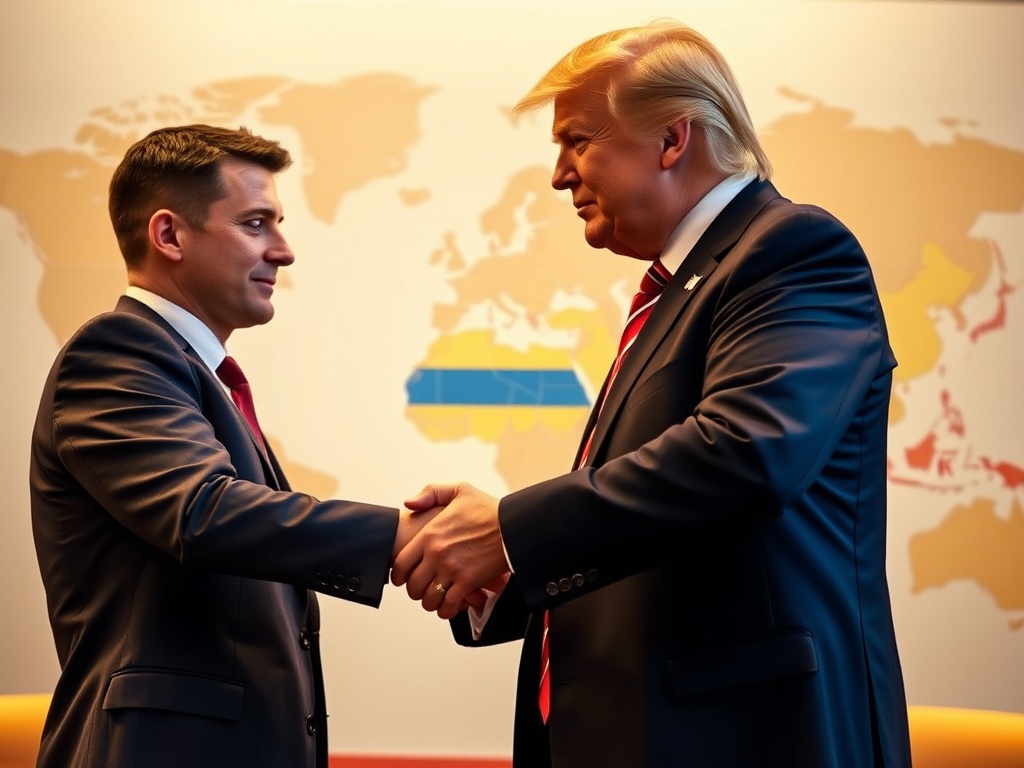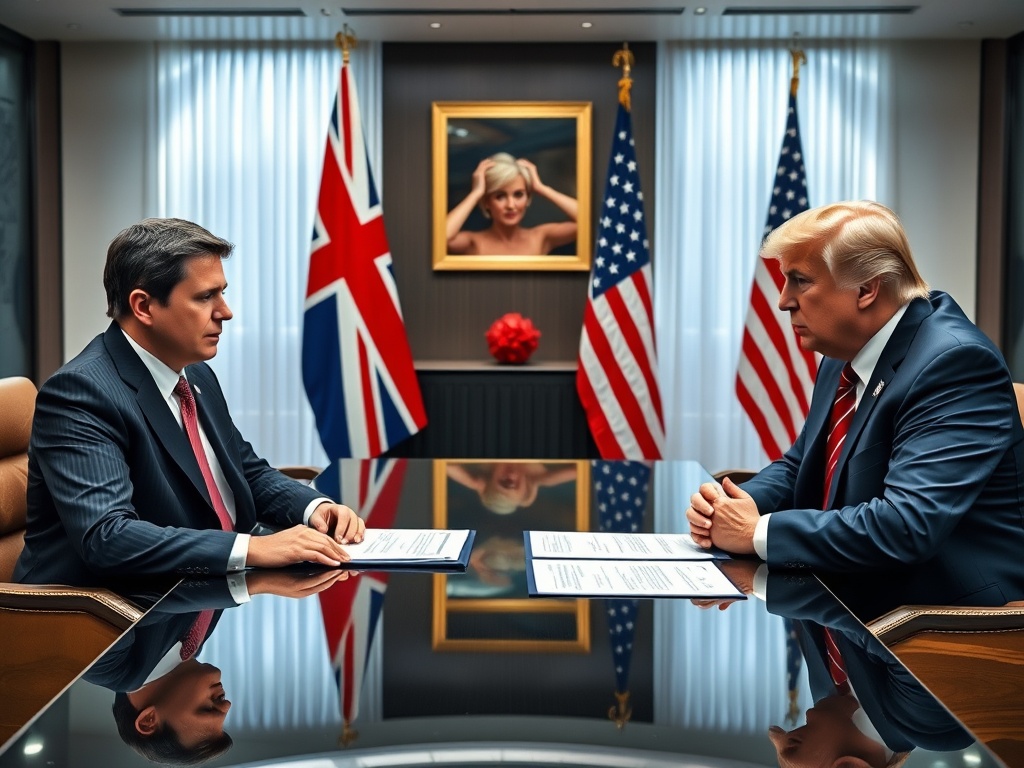Keir Starmer Prepares for High-Stakes Meeting with Donald Trump

Sir Keir Starmer is gearing up for a crucial showdown with U.S. President Donald Trump in the upcoming days. The primary objective of this meeting, scheduled for Thursday at the White House, is to persuade the President to reconsider his inflammatory rhetoric regarding Ukraine. This will be their first in-person conversation since the recent American election, making it particularly significant.
Starmer has been cautious in his approach, refraining from directly criticizing Trump for labeling Ukrainian President Volodymyr Zelensky as a “dictator” and for suggesting that Ukraine provoked Russia’s invasion. In contrast, other European leaders, including French President Emmanuel Macron, have adopted a more confrontational stance. Macron is set to meet Trump in Washington on Monday, underscoring the varying approaches to the U.S. administration among European leaders.
In preparation for his pivotal meeting with Trump, Starmer is expected to engage in high-level discussions in London early next week. These talks will likely involve key figures such as Foreign Secretary David Lammy and National Security Adviser Jonathan Powell. The goal is to formulate a coherent strategy for the encounter with Trump.
According to a source from Whitehall, the UK’s strategy aims to “de-escalate” the heated debate surrounding Ukraine by “injecting a sense of calm”. Starmer intends to underline his agreement with Trump regarding the necessity for Europe to increase its defense spending. It is hoped that this common ground will help align the U.S. administration more closely with the UK’s stance on the ongoing war in Ukraine, which the Government views as a “transactional relationship”.
Insiders anticipate that Starmer will advocate for the UK to have a say in negotiations for a peace agreement with Russia, especially if the UK is expected to take a leading role in a future peacekeeping mission in Ukraine—an initiative that could incur billions of pounds in costs for British taxpayers.
Starmer’s team has also been in communication with Macron’s ahead of their respective visits to the U.S. This collaboration follows a recent summit in Paris, where the UK and France emerged as frontrunners for leading a European security guarantee for Kyiv. However, the UK Government perceives the roles of the two leaders as distinctly different; while Macron primarily represents the interests of EU member states, Starmer aims to serve as “a bridge between the U.S. and Europe”, according to a source.
Russia has firmly stated that it will not accept the deployment of NATO troops to Ukraine as part of any peace agreement, adding another layer of complexity to the negotiations.
Chancellor Rachel Reeves has expressed a growing willingness to support a relatively quick increase in defense spending from 2.3% to 2.5% of GDP, which would translate to approximately £5 billion annually. Liberal Democrat leader Sir Ed Davey recently joined the chorus of senior politicians calling for an immediate boost in the military budget. He suggested to the BBC that while there may not be an easy solution, one viable option could be to enhance digital services taxes imposed on major multinational corporations with turnovers exceeding £500 million. He proposed raising this tax from the current 2% to 10%, which would generate a substantial portion of the funding needed to swiftly reach the 2.5% defense spending target.
Any potential increase in the digital services tax could provoke controversy, particularly given Trump’s close ties with U.S. tech giants. The Liberal Democrats are advocating for the defense budget to eventually rise to 3%, a sentiment increasingly echoed by military veterans and senior members of the Conservative Party.
Davey urged the Prime Minister to engage in candid discussions with Trump during the upcoming visit, stating, “It is a very difficult visit, there’s no doubt about that, but I do think you have to speak to your friends honestly and openly.”
On Wednesday evening, Starmer held a conversation with Zelensky in response to Trump’s “dictator” remarks. Starmer reassured Zelensky that the UK continues to recognize him as Ukraine’s legitimate leader, despite the ongoing postponement of elections due to martial law. Ministers have drawn parallels between Zelensky and Winston Churchill, who did not conduct a general election until World War II concluded. However, they have been careful not to directly criticize Trump regarding this issue.




